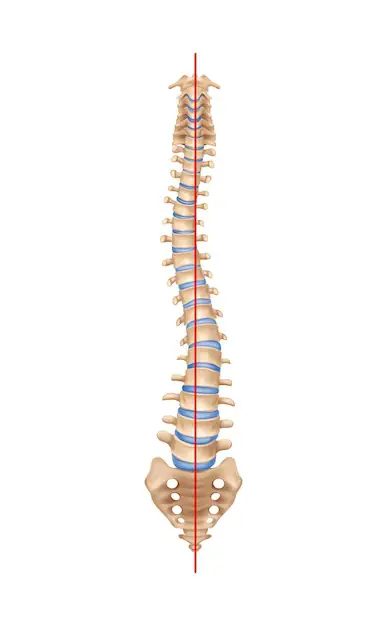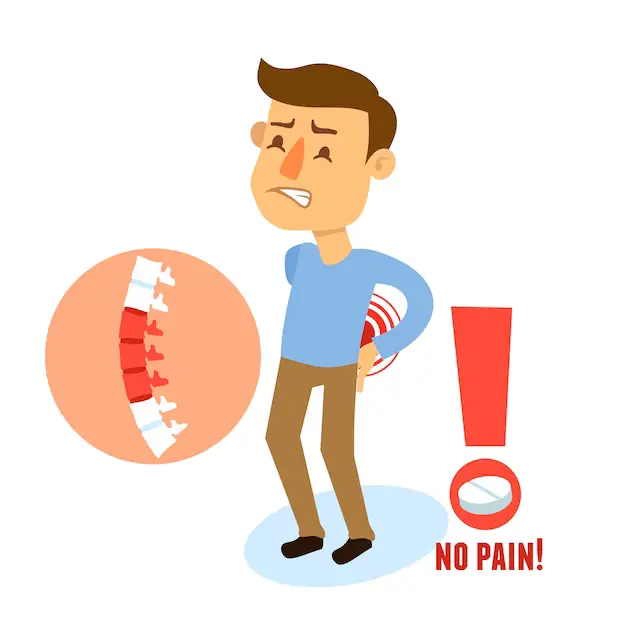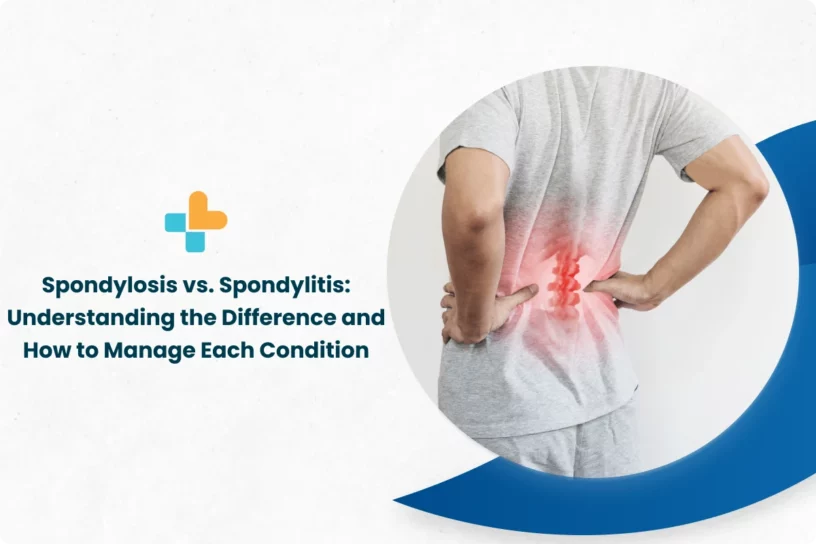Spondylosis and spondylitis are two conditions that affect the spine, but they differ in their causes, symptoms, and treatment options. Spondylosis is a degenerative condition that affects the spine’s vertebrae, while spondylitis is an inflammatory condition that affects the spinal joints. Understanding the differences between these two conditions is crucial for proper diagnosis and management.
In this blog, we will explore the key differences between spondylosis and spondylitis, and provide tips on how to manage each condition for optimal spine health.
What is spondylosis?
Spondylosis, also known as spinal osteoarthritis, is a degenerative condition that affects the spine’s vertebrae. It is a common condition that typically affects individuals over the age of 50. Spondylosis is caused by wear and tear on the spine over time, which leads to the breakdown of the cartilage between the vertebrae and the formation of bone spurs.

What is spondylitis?
Spondylitis is an inflammatory condition that affects the spinal joints. Spondylitis is a chronic condition that can cause pain, stiffness, and inflammation in the spine and other joints. There are several types of spondylitis, including ankylosing spondylitis, psoriatic spondylitis, and reactive spondylitis.

Causes and risk factors of spondylosis and spondylitis
Spondylosis and spondylitis are two related conditions that affect the spine. Spondylosis refers to degenerative changes in the spine, while spondylitis refers to inflammation in the spine. Both conditions can cause pain, stiffness, and other symptoms.
The exact causes of spondylosis and spondylitis are not fully understood, but there are several risk factors that may contribute to their development:
- Age: Both conditions are more common in older adults, as the spine undergoes natural wear and tear over time.
- Genetics: There may be a genetic component to spondylosis and spondylitis, as certain gene mutations may increase the risk of developing these conditions.
- Injury: Trauma to the spine, such as a car accident or fall, can increase the risk of spondylosis and spondylitis.
- Repetitive stress: Repetitive motions or activities that put a strain on the spine, such as heavy lifting or poor posture, can contribute to the development of spondylosis.
- Infections: In some cases, infections such as tuberculosis or osteomyelitis can lead to spondylitis.
- Autoimmune disorders: Spondylitis is more common in people with autoimmune disorders such as rheumatoid arthritis or psoriatic arthritis.
- Lifestyle factors: Obesity and smoking have also been identified as risk factors for spondylosis and spondylitis.
It is important to note that not everyone with these risk factors will develop spondylosis or spondylitis, and some people without any known risk factors may still develop these conditions. If you are experiencing symptoms of back pain or stiffness, it is important to consult with a healthcare provider for an accurate diagnosis and treatment plan.
Symptoms of spondylosis and spondylitis
Symptoms of spondylosis and spondylitis can vary from person to person. In spondylosis, the symptoms may include pain and stiffness in the neck, back, and shoulders. There may also be a reduced range of motion in these areas, as well as muscle spasms and weakness. In some cases, there may be numbness or tingling sensations in the arms or legs.
In spondylitis, the symptoms may include pain and stiffness in the spine and lower back, as well as in the hips and shoulders. The pain and stiffness may be worse in the morning or after periods of inactivity. There may also be a reduced range of motion in the affected areas, and in severe cases, there may be deformities in the spine.
Other possible symptoms of spondylosis and spondylitis include fatigue, fever, and weight loss. It is important to note that some people may not experience any symptoms, especially in the early stages of the condition.
Diagnosis of spondylosis and spondylitis
Diagnosing spondylosis and spondylitis typically involves a combination of medical history, physical examination, and diagnostic tests.
During the medical history, the healthcare provider will ask about the patient’s symptoms, family history, and any previous injuries or medical conditions that may be contributing factors.
The physical examination may involve assessing the patient’s posture, range of motion, and reflexes, as well as checking for any areas of tenderness or swelling.
Diagnostic tests may include imaging studies such as X-rays, CT scans, or MRI scans, which can help identify any abnormalities in the spine or surrounding tissues. Blood tests may also be performed to check for inflammation or other underlying conditions.
In some cases, a biopsy may be performed to obtain a tissue sample for further analysis. A thorough and accurate diagnosis is essential for determining the most appropriate treatment plan for the patient.
Treatment options for spondylosis and spondylitis
Treatment for spondylosis and spondylitis will depend on the severity of the condition, as well as the individual needs of the patient. Treatment may include a combination of medications, physical therapy, and lifestyle modifications.
Medications commonly used to treat spondylosis and spondylitis include nonsteroidal anti-inflammatory drugs (NSAIDs) and analgesics to reduce pain and inflammation. In more severe cases, corticosteroids or biologic medications may be prescribed.
Physical therapy can be beneficial for improving mobility, strength, and flexibility. A physical therapist can also provide instructions on proper body mechanics and posture to help prevent further damage to the spine.
Lifestyle modifications can also be helpful in managing symptoms and slowing the progression of the condition. These may include maintaining a healthy weight, exercising regularly, practicing good posture, and avoiding activities that put unnecessary strain on the spine.
In some cases, surgery may be necessary to treat severe cases of spondylosis or spondylitis, particularly if there is nerve damage or spinal instability.
It is important for patients with spondylosis or spondylitis to work closely with their healthcare providers to develop an individualized treatment plan that addresses their specific needs and goals.
When to seek medical attention for spondylosis and spondylitis
If you experience symptoms of spondylosis or spondylitis, such as chronic pain or stiffness in the neck or back, it is important to seek medical attention. A healthcare provider can diagnose the condition and develop a treatment plan that is tailored to your individual needs.
At Ayu Health, we are committed to providing high-quality healthcare services to our patients. We offer a range of services to help manage spondylosis and spondylitis, including medication management, physical therapy, and lifestyle modifications. Our team of healthcare professionals is dedicated to working with patients to develop individualized treatment plans that address their specific needs and goals.
We also offer a 24/7 care coordinator to assist patients throughout their hospital journey, providing personalized patient support and ensuring a smooth patient discharge. With Ayu Health, patients can feel confident that they are receiving the best possible care for their spondylosis or spondylitis.
Our Hospital Locations
General Surgery Hospitals in Chandigarh | General Surgery Hospitals in Bangalore | General Surgery Hospitals in Jaipur | General Surgery Hospitals in NCR | General Surgery Hospitals in Hyderabad
Our Doctors
General Surgery Doctors in Chandigarh | General Surgery Doctors in Bangalore | General Surgery Doctors in Jaipur | General Surgery Doctors in NCR | General Surgery Doctors in Hyderabad
About the Author

Dr. S. Goel
Dr. S. Goel is a renowned Internal Medicine Specialist currently practicing at Ayu Health, Bangalore. He is a Specialist in Internal Medicine, Diabetes HTN, Paediatric Care, and Family Medicine.




